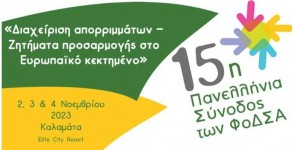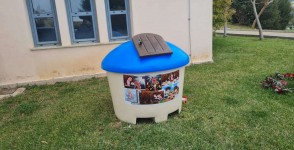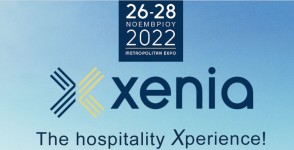Municipalities’ obligations towards the EU are constantly increasing. In 2015, at least 5% of bio-waste should be diverted from landfill to at source sorting. Recycling should reach 50% by 2020 and we are still at 10%. Most important, as of 1/1/2015 the EU GATE FEE tax applies to unsorted waste prior to shipment to landfills. This corresponds to 35 € per tonne of waste and will increase by 5 € every year up to 60 €.
It should also be mentioned that it is the EU’s approach to manage waste in small units in order to reduce the routes of garbage trucks and thus the pollution they cause.
For these reasons, ECOVRS pioneered multiple solutions ranging from home composting to larger units capable of managing tens of tonnes a day and producing compost.
Managing municipal waste is a multilevel process that, if done correctly, can bring drastic cost savings to the municipality. The main categories are defined as green waste (garden) and organic waste (kitchen waste).
Garden Waste
The ideal way to manage all garden waste is composting. The compost produced is a soil conditioner for all green areas but mainly for the organic vegetable garden where materials used in the kitchen are produced. Composting can be done in:
• Composting Bins
Garden composting bins are based on the process of aerobic composting. In aerobic composting of green waste we essentially imitate and accelerate the processes of nature to produce compost. The process will take about 3 months until the first product is ready.
Leading municipality in this field is Nea Smyrni, which has started implementing a standard green waste composting program. The Municipality of Nea Smyrni provided 100 compost bins to its citizens for the purpose of producing “homemade” compost.
An alternative way to deal with green waste is the method of volume reduction. The ideal means to achieve this are OHASHI shredders.
• Shredders
Shredders are the essential tool for composting green waste from garden maintenance and tree pruning.
Organic Kitchen Waste
The ideal way to manage all organic waste is composting. The compost produced is a soil conditioner for all green areas but mainly for the organic vegetable garden where materials used in the kitchen are produced. The recommended type of composting varies according to the situation.
• Composting with earthworms
These compost bins are basically based on earthworms. Earthworms eat and digest waste while simultaneously producing rich nitrogen compounds, which are suitable for plant fertilizer and nutrition, the so-called compost. This way 60% of the food waste can be recycled.
• In-Vessel Composting
Accelerated composting with ROCKET units is the ideal solution for the management of kitchen and garden waste. All waste is converted to rich compost within 2 weeks with minimal energy consumption. Easy to use, clean process without unpleasant odors and suitable to man a central compost station which would cater to the needs of multiple citizens all at once.
• Biodigester
LFC Biodigester is an innovative alternative food waste management system. It is a “stomach of steel” which converts waste into gray water through an aerobic process. The LFC biodigester is a fully closed automatic composting machine that processes most foods within 24 hours. Once installed, you can add waste at any time.
An alternative method of managing kitchen waste is the technique of reducing the volume either by the drying or dehydrating method.
• Method of Dehydration
The DEHYDRA station is a modern system for reducing the volume of kitchen waste. The reduction potential can reach 80% by volume and 50% by weight. Dehydra has the potential to reduce waste volume by up to 80% and reduce waste weight by up to 50%. It uses the most effective combination of filters to remove only moisture and not solid waste that could cause unpleasant odors. The filters are self-cleaning after each cycle.
• Method of Drying
Of all the waste management technologies, GAIA drying technology is unique as it provides an on-site, odorless solution producing two sterile products: biomass and gray water. They are simply automatic drying systems based on heating and mechanical stirring. Since moisture levels in organic and food waste are very high (up to 98%), the reduction in volume and weight is achieved by evaporation of water, leaving a dry sterile biomass that does not smell and can be stored for several weeks.
The Municipality of Halandri pioneered in the field of composting with the EU programm WASTE4THINK. It is based on the innovative idea of at source sorting where the citizens collect their organic kitchen waste in the approved brown bins. The raw material is then collected by the municipality workers and is being processed in the GAIA waste dryers to produce the final product. The program is successfully active since 2016.



